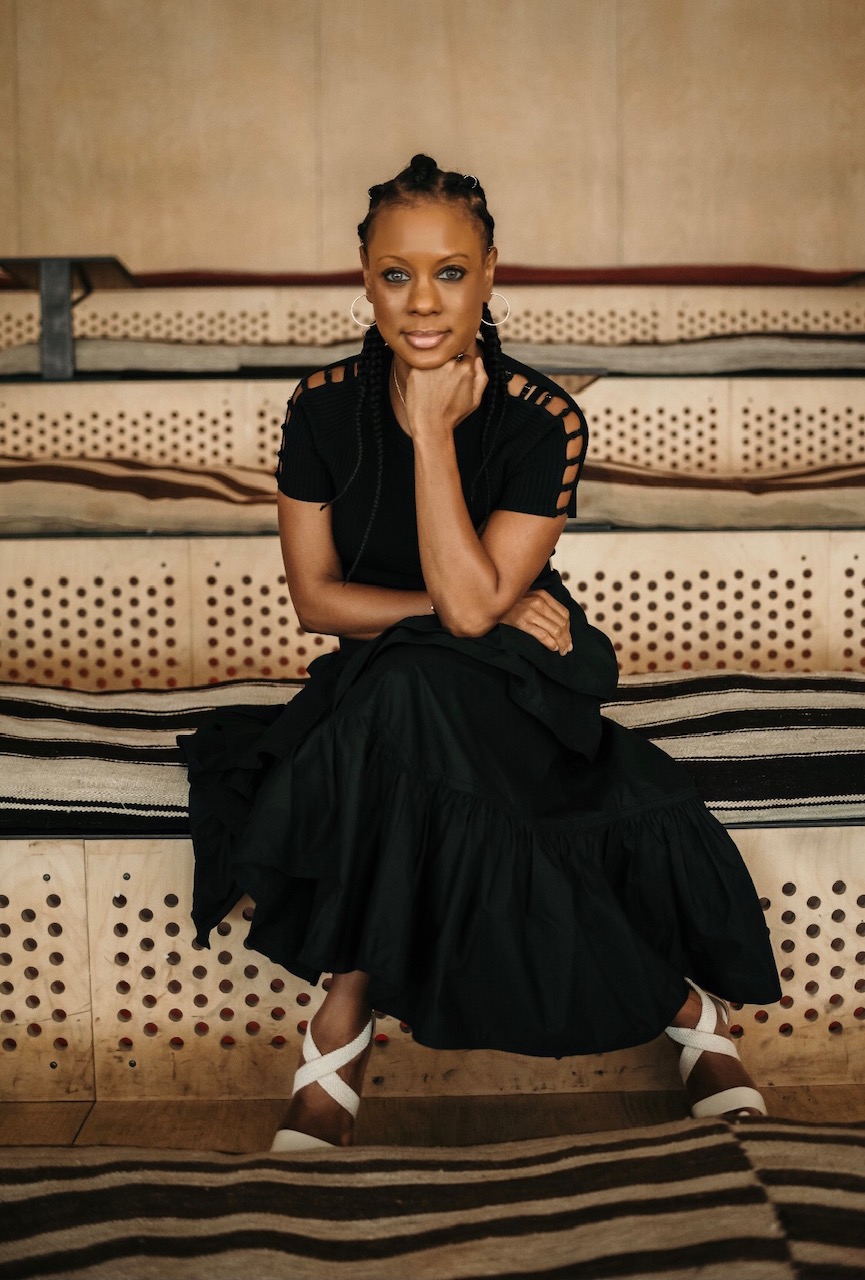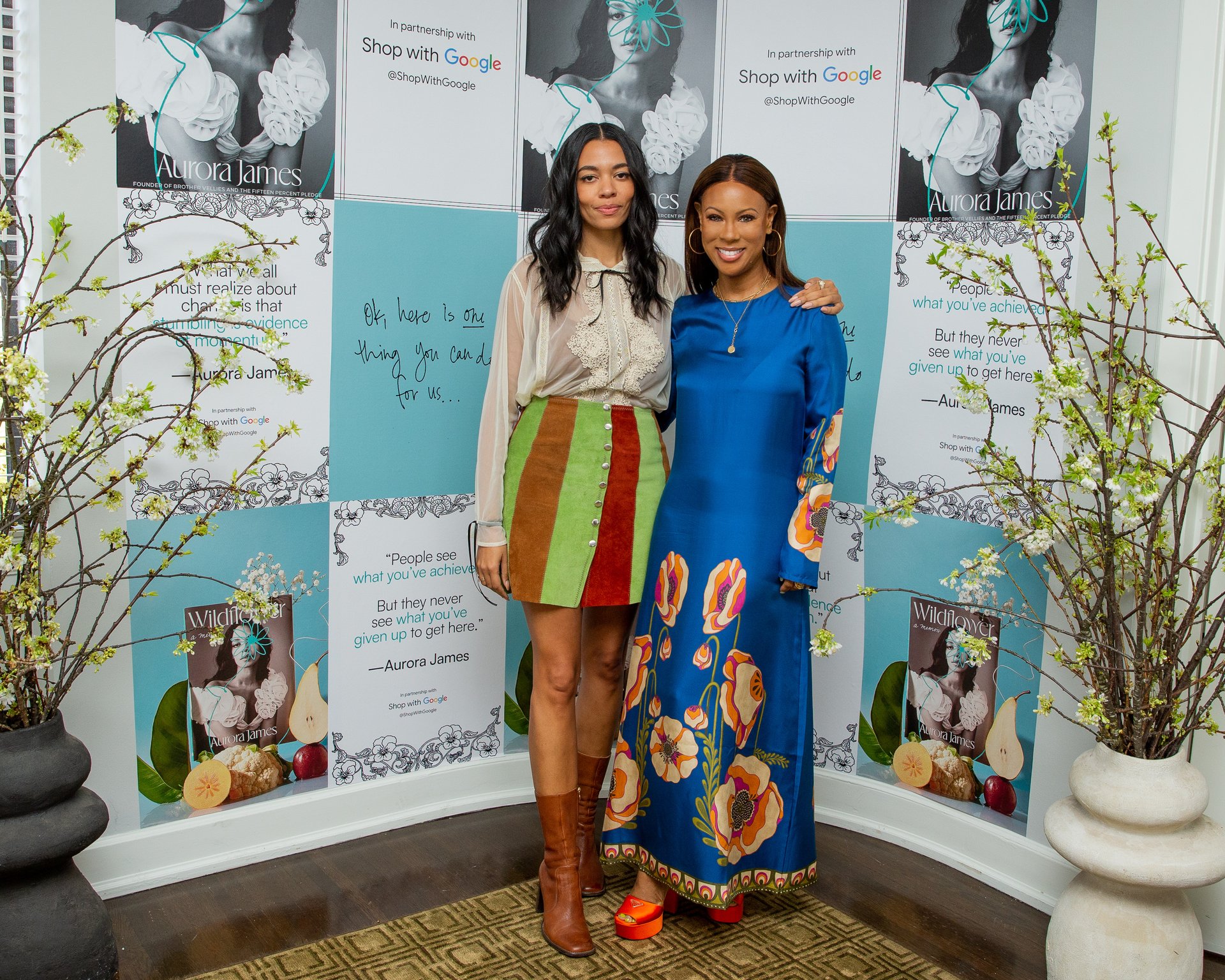Career Conversations: The C-Suite Life of Stephanie Horton
July 11, 2023
Rashad Benton

Stephanie Horton is a leading global luxury and fashion executive from the South Side of Chicago. As a teen, she was a member of Jack and Jill of America, a leadership group founded during the Great Depression by African American mothers who wanted to bring their children together in a social and cultural setting to improve their quality of life. Years of debutante balls, conventions, and summer jobs as the sometimes-only person of color in the room forced Stephanie, a concealed introvert, to learn early on how to assimilate.
After high school, she enrolled at the University of Michigan and earned a bachelor’s degree in finance because she believed her destiny would be in business and accounting. Her graduate studies began at the University of Chicago and later moved to DePaul University where she earned her MBA but later came to the realization that she detested the field. Stephanie’s reaction to this revelation was to pivot, and she ended up working at a Chicago advertising agency which exposed her to a more exciting world revolving around automotive brands like Audi and Cadillac, where celebrity and events would eventually become her norm, and one that helped her established a diverse career that would only progress onward.
Stephanie is a Global Consumer Marketing Director at Google and serves on the advisory boards of NYU Stern’s Fashion/Luxury MBA program, Black in Fashion Council, and McMullen Boutique. She also serves on the board of directors for Farfetch, where she chairs the Environmental, Social, and Governance (ESG) committee, and is a board member and senior advisor for Three Hills Capital Partners, amongst other organizations.
Let’s talk about your background: your online resume dates back to 2005 at the NY Times; However, what were you doing or where did you work prior to landing that position?
I was working as the director of marketing at Gotham and Hamptons Magazine with Jason Binn when I first arrived in New York. This was a very interesting position. I accepted the role because I had previously held the position of head of all automotive accounts at Draft Worldwide, a Chicago-based agency. Before influencer marketing was even a thing, I worked on the account for Cadillac and launched the Escalade in Miami with Carmen Electra and LL Cool J at Delano in 1998. After that, I graduated to M&M Mars and consumer packaged goods. I met Jason by purchasing Audi advertisements in the Hamptons, and after a while, we clicked. He told me that he was starting a magazine called Gotham and wanted me to run marketing. This was perfect because I was getting ready to move to New York for personal reasons anyway while he was telling me that.
It was the best and weirdest year of my life because it was all so chaotic. After all, we were super busy launching a magazine. I met a ton of people through that position, and I’m really good at networking and understanding who and want can help provide reach and growth to what I’m doing.
How would you describe your method of advancement?
I have always considered the opportunity’s scope. I took a pay cut when I joined Farfetch as their Chief Marketing Officer, but it was an easy decision to jump at the chance to work at a startup in London at the forefront of fashion technology. I received equity, which was great, but to be honest, I wasn’t sure what was going to happen. Because it was still a small business supported by funding at that point, I could have been there for six months or six years. There were times when it seemed like, “Who knows what will happen if we don’t close this next round of funding?” Having said that, I probably learned, and had the most exposure at that job because we went from a 100-million-dollar company to a billion-dollar company during my time there and was later listed on the New York Stock Exchange. It was an undeniable experience.
When I left Vogue—a place I truly cherished and had been good to me—for Shopbop, it was clear the publishing industry was behind concerning digital adoption, and that left me feeling like I’d somehow be left behind. So, I went to Shopbop which is owned by Amazon where I knew nothing, but I learned quickly. For me, I was early to understand performance marketing and how it works, and how to perfect the careful balance between art and science; the perfect recipe to grow a brand. It’s about where am I deficient? What do I need to learn? And will this next opportunity give that to me and how do I use it to help the company grow. It’s worked for me so far and it isn’t about the title for me by any stretch of the imagination. I have never said that I must be VP this or chief that.
The positions you’ve held scream power and powerful. What are you doing with that power? Not implying that you are required to do anything, but if so, what is it?
I do believe if you have a seat at the table that you should do something. You shouldn’t just sit around in one of these jobs. For me, it’s been about helping Black and underrepresented businesses. Since the tail end of my time at Vogue, I’ve most certainly been in positions where I’m able to influence where the company is going or what we’re doing. I’ve always ensured that there is representation, and I’m now ensuring that we are investing and giving back. There’s a vast knowledge gap out here and helping to educate and elevate to make sure these businesses can survive and grow is a part of my work. I take every call.
With all your exceptionally sought-after jobs at these high-profile organizations, how do you know when it is time to leave? What is it that even gets you thinking about leaving?
It’s time for me to leave when everything is going as planned and I’m no longer uncomfortable. I believe that is precisely why I should leave. To tell you the truth, I think you should always be a little off balance and uncomfortable. You begin to coast when you are sitting pretty and can say, “This is so easy,” and I don’t like being a coaster; I like being hungry and figuring out the next move. I like to solve problems and find solutions. If there’s nothing else to do it’s time for me to go.
Is it because of all the shrinkage-related pressures in the fashion industry that you made the decision to switch careers from fashion at Alexander Wang or Vogue to technology, or was it something you really wanted to do?
Wang was fantastic, and I adore Alex. However, I had been in fashion/retail for some time, and at the stage of my career in which I find myself now, there really aren’t that many more chances to pivot a lot because there is a learning curve. When I was offered my current position at Google, I thought, “This is the best of both worlds.” We are building and shopping, and I am familiar with both retail and e-commerce. I was unaware of the technical aspect; I don’t know as much about product marketing or engineering, but this is a great place for me to learn new skills. A.I. is coming and what better place to learn A.I. than Google, so being on the cutting-edge and forefront of where things are going and being able to utilize my skillset to help fashion was appealing.

Photo from Shop with Google Sponsorship of Aurora James Book launch.
These fancy titles, such as the one you hold, Global Consumer Marketing Director, appear frequently. But exactly what does the role holder do throughout the day? What are your benchmarks?
There are a lot of varying facets. I run global marketing for shopping and payments; on any given day a lot is happening from brand marketing including campaigns from CTV to outdoor, the traditional marketing but also all our social media partnerships fall under that umbrella. Then there is product marketing, which focuses more on assisting our engineering and product development teams and guiding them through value propositions, providing market insights, and ensuring that innovation is developed. In addition, I oversee a strategy and operations team that focuses on white papers, white space, and updating the product team. There’s a great deal of strategic planning, events, and collaborating with our international teams on their work since this is a global role.
How well did your experiences in fashion and publishing prepare you for a career in technology? Did you learn new skills, or did you use the ones you already had?
Some of the abilities I previously had were cross-functional because a lot of them dealt with helping to develop tools around shopping and retail. I believe that my knowledge of the industry, people’s shopping habits, e-commerce, and product journeys has been extremely beneficial. Having said that, there is still a great deal to learn about technology, including how things are made, how they work, how we introduce new products to the market, and how we make them resonate with consumers. The journey is very different.
We frequently read about the phenomenon stories where one person gave another a chance and it worked. Are you into giving people opportunities, or do you operate from more of a proven experience mindset?
I am into giving people opportunities if I see something in them. You don’t need to check all the boxes, but there must be something like a new POV or solution that you can bring. I’m not that into blind opportunities with people I have never met because if it doesn’t work then that’s going to be on me. I tend to always think about the people who are currently on the team that work hard every day. If I bring someone on who does not measure up, then that becomes the team’s problem and that’s not fair to them.
Before we conclude, what do you want to be able to say you accomplished when you retire? What’s your goal?
I want to leave a legacy of supporting underrepresented small businesses and providing exposure to those who run them. My parents had a lot of friends who gave me summer jobs. Being in places where I was the only Black person or the second or third, especially in my early years when no one cared about diversity, I think it became extremely important for me to open the door because someone had already opened it for me. Now, how can I open it even wider? Stacie Henderson and I started Fashion Tech Connects where we provide internships for girls of color at four-year universities, and I have also been lucky enough to invest in several female founded and black owned businesses and projects. If I had all the money in the world I would zero in on investing and mentorship full-time.